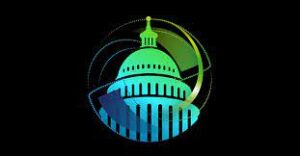Expert Assistance for a Smooth Tax Season 2023 and Beyond
For businesses in the United States, tax season can be a stressful and overwhelming time. In fact, according to a survey by the NSBA, nearly 60% of small business owners spend over 40 hours per year on federal taxes alone.
Additionally, the Taxpayer Advocate Service reported that in 2020, the IRS received over 167 million tax returns. Also, it issued over $452 billion in refunds. With such a large volume of tax returns to process, it’s no wonder that many individuals and companies struggle to navigate the complex tax system.
Fortunately, expert help can make a difference in streamlining the tax preparation process. It will also ensure compliance with all tax laws and regulations. By enlisting the help of knowledgeable tax professionals, businesses can reduce their tax burden. They can avoid penalties and legal consequences. As we enter the 2023 tax season, it’s crucial to consider seeking expert help to achieve a smoother and more successful tax experience.
Changing Landscape of US Tax Laws

In recent years, US tax laws have undergone significant changes. It has affected individuals, entrepreneurs, and businesses in a certain way.
For instance, in 2017, the introduction of the Tax Cuts and Jobs Act (TCJA) brought comprehensive changes to the US tax code in over 30 years. This law lowered the tax rates for individuals and businesses. It doubled the standard deduction and eliminated personal exemptions.
The TCJA also introduced a cap on state and local tax deductions. The result is it limited the amount of deductible state and local income, sales, and property taxes to $10,000. This change has had a significant impact on taxpayers in high-tax states like California, New York, and New Jersey.
Another change that has affected businesses is the introduction of the alternative minimum tax (AMT). This tax ensures that corporations pay a minimum amount of tax by adding back certain deductions and credits to their taxable income.
Looking to the future, there are potential changes to US tax laws that taxpayers should be aware of. For example, President Biden has proposed increasing the top individual tax rate from 37% to 39.6%. It will raise the corporate tax rate from 21% to 28%.
These changes could impact high-income individuals and businesses. But they are still subject to debate and may not be implemented as proposed.
It’s important to note that tax laws are always subject to change and can have a significant impact on taxpayers. According to the Tax Foundation, between 2017 and 2023, there were 4,420 changes to the US tax code, with an average of 1,105 changes per year.
In conclusion, staying up-to-date with the changing landscape of US tax laws is crucial. Understanding the potential future changes can help taxpayers plan and prepare for a smooth tax season and beyond.
What’s new, and what to keep in mind when filing in 2023
When it comes to taxes, it’s crucial to stay informed and prepared for filing in 2023. Here are some important points to consider:
Even if you don’t have to file a tax return, filing for 2022 could put money in your pocket. If you qualify for certain tax credits or have had taxes withheld from your paycheck. This includes students, part-time workers, and retirees.
Filing electronically with direct deposit is key to getting the fastest refund. Avoid filing on paper to prevent delays. Most people who file electronically with no issues can expect their refund within 21 days if they choose direct deposit.
More people may be eligible for the Premium Tax Credit (PTC), which is available for those who enroll in a qualified health plan. If you qualify for the PTC, you must file Form 8962 to claim it on your tax return.
The eligibility rules have changed for claiming a tax credit for clean vehicles. Review the changes under the Inflation Reduction Act of 2022 to see if you qualify.
Refunds may be smaller in 2023 because taxpayers will not receive an additional stimulus payment with their refund, and those who take the standard deduction won’t be able to deduct charitable contributions like they could on their 2021 returns.
Use the “Where’s My Refund?” tool on IRS.gov to check your refund status. The tool updates once every 24 hours and is usually available overnight.
Refunds that include the Earned Income Tax Credit (EITC) and the Additional Child Tax Credit (ACTC) cannot be issued before mid-February. This is due to the 2015 PATH Act.
It requires the IRS to hold the entire refund (not just the portion associated with EITC or ACTC) to stop fraudulent refunds from being issued. By February 18, taxpayers should receive an update on the status of their refund.
The majority of them should receive their EITC/ACTC refunds by February 28. If they chose direct deposit and their tax return are free of problems.
The Latest Trends in Tax Preparation
Nowadays, tax preparation focused on automation, cloud-based systems, and AI-powered tax software. These innovations are transforming how individuals and businesses approach tax preparation.
Automation has made tax preparation faster and more efficient than ever before. It eliminates the need for manual data entry and minimizes the likelihood of errors. This has reduced the burden on tax professionals and allowed them to focus on more complex tasks.
Cloud-based systems have made tax preparation more accessible and convenient for taxpayers. They enable taxpayers to access their tax information from anywhere, anytime, and on any device. This has reduced the need for face-to-face interactions.
AI-powered tax software is also gaining popularity among tax professionals. It uses machine learning algorithms to analyze tax data and provide personalized tax advice.
According to NATP, 55% of tax professionals use cloud-based tax preparation software. Furthermore, 52% of taxpayers prefer to file their taxes electronically, according to the IRS.
These trends have had a significant impact on tax preparation. They have made tax preparation faster, more accurate, and more accessible.
Expert Assistance for Tax Season and Beyond
It is important to build a relationship with an expert and work with them on an ongoing basis. This allows individuals and businesses to receive ongoing advice and support, ensuring they stay on track to achieve their financial goals.
Consider the following expert’s tips for a smooth 2023 tax season:
Get ahead of last-minute filers:
Don’t wait until the deadline to file your tax return. The necessary documents required for filing your tax return arrive in January and February. So, you can start preparing for your return early. Filing early can help you get your refund faster. It will also give you more time to address any issues or questions that may arise. Additionally, filing early can help you avoid fraud as it gives potential scammers less time to file ahead of you.
File important documents in a safe place:
As tax documents arrive, file them together for safekeeping. Consider scanning a copy of each document to create an electronic version for archiving purposes. For self-employed individuals, start gathering receipts and reviewing last year’s bank statements. Also, credit card statements to tally business-related expenses. It’s also helpful to compile a file of deductible expenses for itemizing.
Know what’s changing this 2023 tax season:
Each year, the tax code may change due to new and expiring legislation. Understanding these changes is essential if you do your own taxes. Key changes for the 2023 tax season include smaller refunds due to Covid-19-related tax credits expiring. It also includes no tax break for charitable donations, changes to electric vehicles and other energy tax incentives. It also covers delayed 1099 gig-economy reporting changes.
Streamline the tax preparation process:
Use tax preparation software to prepare and file your tax return. Many programs automatically pull in last year’s return and review your return to identify potential audit risks. Filing electronically and signing up for a direct deposit can help you avoid errors and receive your refund faster.
Conclusion:
In conclusion, the 2023 US tax season is likely to present challenges and delays. However, by following experts, businesses can mitigate risk and ensure a smoother process. It is also advisable to seek the help of a trusted financial advisor. They can help you stay informed about important tax deadlines. So you can proactively plan for the future. If you are not currently partnered with a financial planner, we encourage you to reach out to us. We can assist you with your financial and tax planning needs. So, contact us today to get started.










